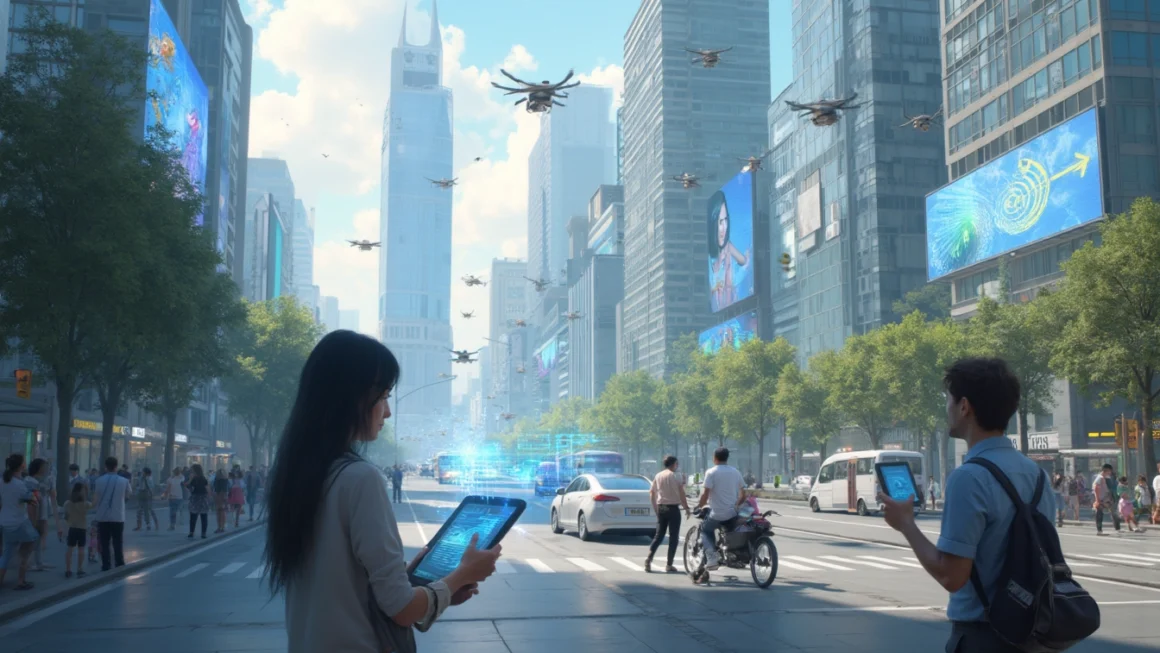The Rise of Artificial Intelligence in Space Exploration
Table of Contents
The realm of space exploration is witnessing a revolutionary transformation with the integration of artificial intelligence (AI). As we venture further into the cosmos, AI is becoming an indispensable tool for scientists and space agencies worldwide. This technological advancement is not just enhancing our capabilities but is fundamentally changing how we approach space missions.
AI’s Role in Analyzing Vast Amounts of Data
One of the most significant contributions of AI in space exploration is its ability to process and analyze enormous amounts of data. Space missions generate terabytes of information daily, far exceeding human capacity to interpret efficiently. AI algorithms can sift through this data, identifying patterns and anomalies that might take humans years to discover.
For instance, NASA’s Kepler mission used AI to identify potential exoplanets. The AI system analyzed light patterns from distant stars, detecting minute changes that could indicate the presence of orbiting planets. This approach led to the discovery of numerous exoplanets, significantly expanding our understanding of planetary systems beyond our solar system.
Enhancing Spacecraft Autonomy
AI is also playing a crucial role in increasing the autonomy of spacecraft. As we explore deeper into space, the time delay in communications between Earth and spacecraft becomes more pronounced. This delay can be critical in situations requiring immediate decisions. AI-powered systems can make real-time decisions, adjusting a spacecraft’s course or operations without waiting for instructions from Earth.
The Mars rovers, including Curiosity and Perseverance, utilize AI for navigation and decision-making. These rovers can identify interesting geological features, avoid obstacles, and even prioritize scientific targets without constant human intervention. This level of autonomy is essential for exploring distant planets and moons where direct human control is impractical.
Optimizing Mission Planning and Resource Management
Space missions are complex endeavors requiring meticulous planning and resource management. AI algorithms are being employed to optimize these processes, leading to more efficient and cost-effective missions. These systems can predict potential issues, suggest optimal trajectories, and manage onboard resources more effectively than traditional methods.
For example, AI-powered automation tools are being used to streamline mission control operations, reducing the workload on human operators and minimizing the risk of errors. This integration of AI in mission planning and execution is crucial for the success of long-duration missions, such as potential human expeditions to Mars.
Advancing Space Weather Prediction
Understanding and predicting space weather is vital for the safety of astronauts and the protection of satellites and other space assets. AI is revolutionizing space weather forecasting by analyzing solar data and predicting potentially hazardous events like solar flares and coronal mass ejections with greater accuracy and lead time.
These AI models can process data from multiple sources, including solar observatories and satellite sensors, to provide more comprehensive and timely space weather predictions. This capability is essential for safeguarding both crewed and uncrewed space missions, as well as protecting Earth-based infrastructure from the effects of severe space weather events.
Challenges and Ethical Considerations
While the benefits of AI in space exploration are evident, there are challenges and ethical considerations to address. The reliability of AI systems in the harsh and unpredictable space environment is a primary concern. Ensuring these systems can operate effectively under extreme conditions and with limited human oversight is crucial.
Additionally, as AI systems become more autonomous, questions arise about the extent of their decision-making authority, especially in critical situations. Balancing the benefits of AI autonomy with the need for human oversight and control remains an ongoing challenge for space agencies and policymakers.
The Future of AI in Space Exploration
As AI technology continues to advance, its role in space exploration is set to expand further. Future applications may include:
- AI-assisted design of spacecraft and habitats for long-duration missions
- Advanced robotic explorers capable of conducting complex scientific experiments autonomously
- AI-driven systems for managing life support and resource recycling on space stations and planetary bases
- Enhanced communication systems that can maintain reliable links across vast distances in space
The integration of AI in space exploration is not just enhancing our current capabilities; it’s opening up new possibilities that were once confined to the realm of science fiction. As we continue to push the boundaries of space exploration, AI will undoubtedly play a pivotal role in unlocking the mysteries of the universe and paving the way for humanity’s future among the stars.
Conclusion
Artificial Intelligence is revolutionizing space exploration, offering unprecedented capabilities in data analysis, spacecraft autonomy, mission planning, and space weather prediction. As we venture further into the cosmos, the synergy between human ingenuity and AI capabilities will be crucial in overcoming the challenges of space exploration and expanding our understanding of the universe. While challenges remain, the potential of AI in space exploration is boundless, promising a future where the frontiers of space are more accessible and better understood than ever before.




